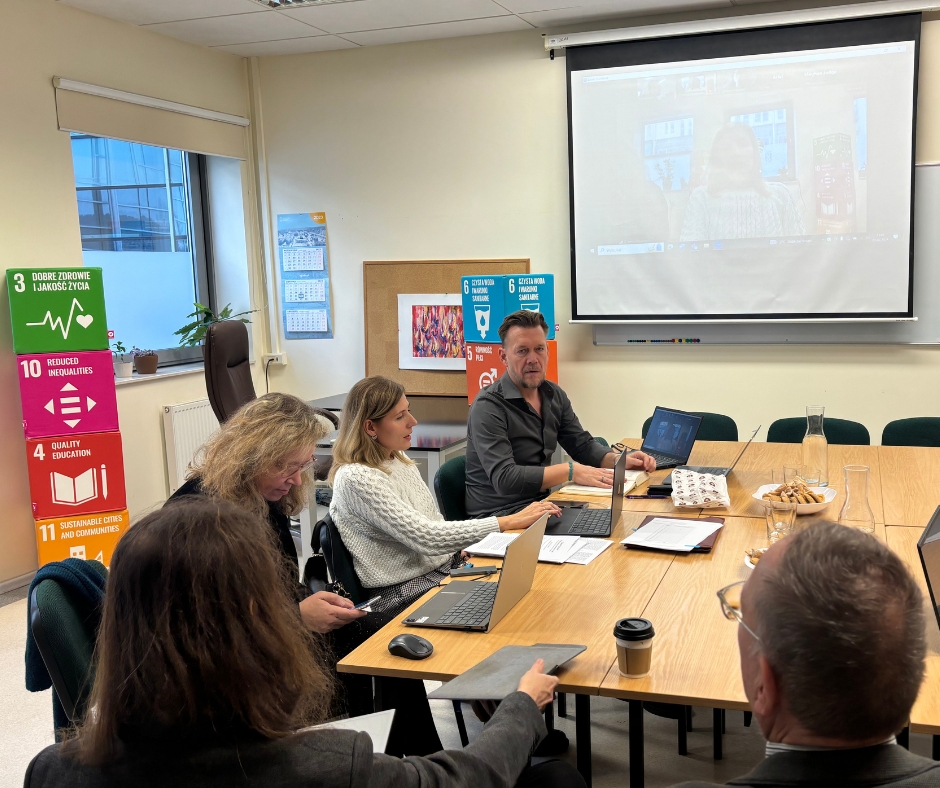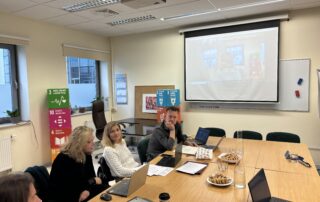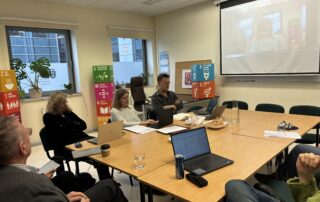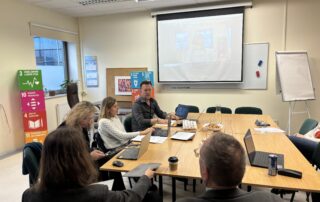On Nature and Humanity – this was the topic of the first seminar in the series ‘Cosmophilosophy Thinking Science & Society Out of Order’ with Professor Rick Dolphijn, held on Monday, 5 February 2024 at the Centre for Sustainable Development. The philosopher from Utrecht University is taking part in the UG Visiting Professors programme at the invitation of the Faculty of Philology of the University of Gdansk.
The aim of the seminars is, as Prof. Rick Dolphijn emphasises, re-reading selected texts that question the concept of otherness explored by numerous thinkers in order to look at what cosmophilosophy can be in a time of crisis and uncertainty. A total of 15 guests attended the first meeting in a hybrid format. The intimate format allowed for a free exchange of views between participants. The next seminars will take place on 24 April (‘On Physical Law and the Politics of Knowledge’) and 15 May (‘On New Communities and the Earth’).
The seminars were organised by Dr Irena Chawrilska, coordinator of the ‘Culture (for) Sustainable Development’ programme of the UG Centre for Sustainable Development in collaboration with the UG Faculty of Philology.
You can read more about the seminars here: “Cosmophilosophy. A different perspective on science and society.
Rick Dolphijn
Rick Dolphijn is Associate Professor at Utrecht University (Faculty of Humanities) and Honorary Professor at the University of Hong Kong (Faculty of Arts). He has published widely on ecology, philosophy and the arts. Currently he is a PI in two internationally funded research projects. His last monograph is The Philosophy of Matter (Bloomsbury 2021). As part of the ‘Visiting Professors UG’ programme, he was invited by Irena Chawrilska, PhD and the Faculty of Philology to visit the University of Gdansk, to teach and collaborate on research in the area of cosmophilosophy.
What is the CZRUG Culture for sustainable development programme?
In the Culture for Sustainable Development Programme, CSDUG creatively ponders the role of culture in the attainment of the Sustainable Development Goals. Agenda 2030 as a strategy for the world still stands and the university’s goal is to create new ideas and in the end develop solutions on the path towards a sustainable future and empower communities to response-ability for their communities and land as Donna Haraway states. New narratives, ways of thinking and innovations can only emerge through negotiation. Making worlds collectively enables humans to look around rather than ahead. Making worlds happens also beyond the humans, within the ecological systems in which each organism has potential to operate as a change agent towards sustainability.





